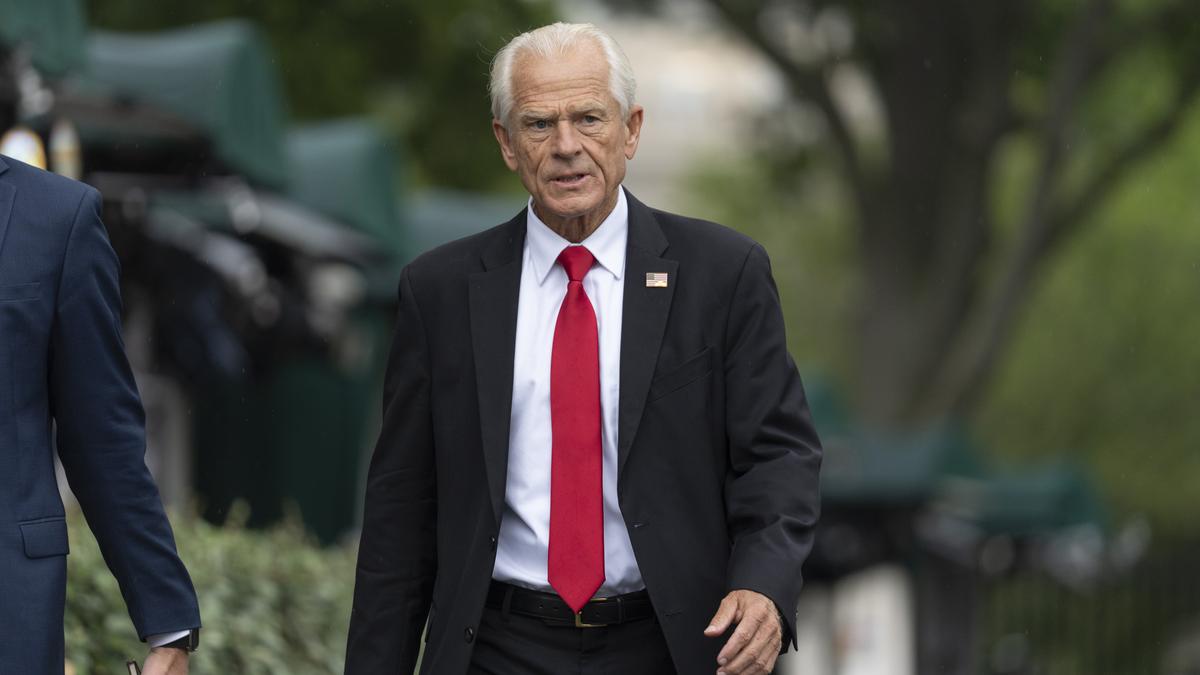 |
|
The article highlights the escalating tensions between the United States and India over India's continued purchase of Russian crude oil in the context of the ongoing war in Ukraine. Peter Navarro, a former White House trade advisor, voices strong criticism, accusing India of effectively funding Russia's war effort and undermining the international coalition aimed at isolating Moscow. He argues that India's actions contradict its aspirations of being treated as a strategic partner by the United States. The article also reveals the broader implications of this disagreement, including the imposition of tariffs by the U.S. and the postponement of trade negotiations, signaling a potential strain in the bilateral relationship. India defends its position by pointing out that the U.S. and European Union also continue to purchase goods from Russia, suggesting a double standard in the criticism directed at New Delhi. The article further notes the geopolitical context of India's relations with both Russia and China, adding another layer of complexity to the situation. Navarro's assertion that India is acting as a "global clearinghouse" for Russian oil, converting it into high-value exports, underscores the economic dimension of the issue. The article also points to concerns about the transfer of sensitive U.S. military technology to India, given its deepening ties with Russia and China. This reveals a strategic dimension to the dispute, raising questions about trust and alignment in the face of evolving geopolitical realities. The impending meeting between Prime Minister Modi and President Xi Jinping, as well as the visit of Chinese Foreign Minister Wang Yi to India, further underscore the shifting dynamics in the region. The delay in trade talks and the imposition of tariffs represent concrete consequences of the disagreement, highlighting the potential for economic repercussions. The article raises significant questions about the future of U.S.-India relations and the challenges of balancing economic interests with geopolitical considerations. The evolving dynamics between India, Russia, China, and the United States are crucial to understanding the broader shifts in the global order.
The core issue at the heart of the disagreement is India's continued engagement with Russia despite international pressure to isolate Moscow following the invasion of Ukraine. While India has refrained from explicitly condemning Russia's actions, it has also emphasized the importance of dialogue and diplomacy in resolving the conflict. However, its continued purchase of Russian oil is seen by some, particularly in the United States, as providing vital economic support to the Russian regime, enabling it to continue its military operations. This perspective is clearly articulated by Peter Navarro, who argues that India is effectively funding the war through its oil purchases. India's defense is rooted in the argument that it is being unfairly singled out, as other countries, including the U.S. and European nations, also continue to engage in trade with Russia. This argument highlights the complexities of applying sanctions and the challenges of achieving a complete economic blockade. It also raises questions about the equitable distribution of the burden in the effort to isolate Russia. India's energy security is also a key consideration. As a major energy consumer, India relies heavily on imports to meet its needs. Russian oil offers a relatively affordable option, particularly in the context of rising global energy prices. Cutting off Russian oil supplies would likely have significant economic consequences for India, potentially impacting its growth and development. The geopolitical context of India's relations with Russia and China adds another layer of complexity. Russia has historically been a major supplier of military equipment to India, and the two countries have maintained close strategic ties. China, on the other hand, is a rising power in the region and a major competitor to India. Navigating these relationships requires a delicate balancing act, and India is likely seeking to maintain its strategic autonomy by avoiding over-reliance on any single power.
The U.S. tariffs imposed on Indian goods, coupled with the postponement of trade negotiations, represent a significant escalation in the dispute. These measures are likely intended to exert pressure on India to reconsider its stance on Russian oil. However, they also carry the risk of further straining the bilateral relationship and potentially undermining broader strategic cooperation. The delay in trade talks is particularly significant, as it signals a setback in efforts to forge closer economic ties between the two countries. A proposed trade agreement had been seen as a way to address existing trade imbalances and promote greater economic cooperation. The postponement of these talks raises questions about the future of the agreement and the potential for further trade disputes. The implications of the U.S.-India disagreement extend beyond the immediate issue of Russian oil. The dispute has broader implications for the global effort to isolate Russia and for the future of the international order. If India continues to resist pressure to reduce its engagement with Russia, it could embolden other countries to do the same, potentially undermining the effectiveness of sanctions and other measures. The dispute also highlights the challenges of maintaining unity among allies in the face of divergent economic and strategic interests. The United States and its allies face the difficult task of balancing their desire to isolate Russia with the need to maintain strong relationships with countries like India. The outcome of this dispute will likely have a significant impact on the future of U.S.-India relations and on the broader geopolitical landscape. It underscores the complexities of navigating a multipolar world and the challenges of forging a common approach to dealing with global crises. The article ultimately leaves the reader with a sense of uncertainty about the future trajectory of U.S.-India relations, emphasizing the need for careful diplomacy and a nuanced understanding of the competing interests at play.
Source: India’s purchase of Russian crude funding war in Ukraine, has to stop: U.S. trade adviser Navarro
